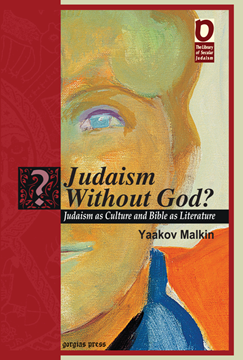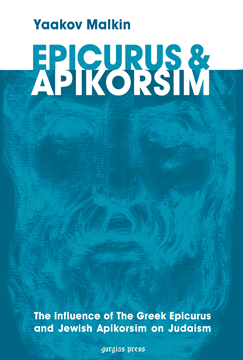Yaakov Malkin
Judaism Without God?
Judaism as Culture, Bible as Literature
ISBN: 978-1-60724-341-0
The humanistic, non-religious approach of this book presents Judaism as the Culture of the Jewish People and God as a literary figure created by the authors of the Bible. This book defines key concepts in the discourse of Judaism as Culture. It offers a concise version of the history of pluralism in Judaism during the biblical era, the Hellenistic period, the influence of the Talmudic "culture of dispute" and the asking of new questions, the influence of the secularization process on Judaism, the assimilation of Jews in foreign cultures, and the formation of Israeli culture.
$166.00 (USD) $99.60 (USD)
Epicurus & Apikorsim
The Influence of The Greek Epicurus and Jewish Apikorsim on Judaism
ISBN: 978-1-60724-344-1
This book describes the influence of Epicurus on Judaism. Judaism is the only national culture which has adopted the name of this Greek philosopher, using it as a term designating Jews who believe in freedom to choose their way of life, without obligation to obey religious precepts. Today, most Jews live as "Apikorsim". The heresy implicit in the denial of the existence of a personal God includes a denial of belief in life after death. Apikorsim believe that the purpose of life and of morality is found in striving for happiness.
$126.00 (USD) $75.60 (USD)


